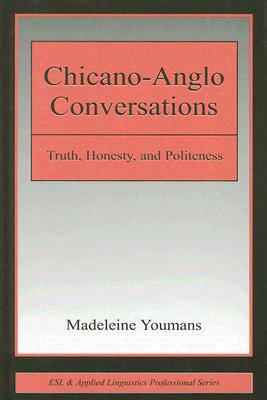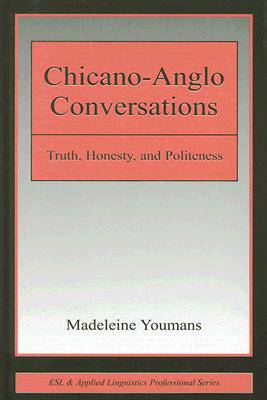
- Retrait gratuit dans votre magasin Club
- 7.000.000 titres dans notre catalogue
- Payer en toute sécurité
- Toujours un magasin près de chez vous
- Retrait gratuit dans votre magasin Club
- 7.000.000 titres dans notre catalogue
- Payer en toute sécurité
- Toujours un magasin près de chez vous
Description
This groundbreaking book--about differences in communication practices between Mexican-American underclass residents in an East Los Angeles housing project and white, middle-class literacy tutors who worked with them--makes an important contribution to research on the sociolinguistics of the Chicano gang culture.
More specifically, this work adds substantially to research on understanding linguistic politeness theories, the use of epistemic modals for negative politeness, and evidentiality. It refines, and in a number of cases, defines, function categories for epistemic modals through a rigorous grammatical analysis. This book is also distinctive in that the author subjects the language of middle-class Anglos to the same type of scrutiny that is often reserved for non-mainstream groups. Youmans contends that the differences between the Chicano and Anglo speakers are the result of the two groups' different sociocultural circumstances, including historical and current living and working patterns and the relative value placed on familialism and communalism versus individualism and independence. (The terms Chicano and Anglo are used as a kind of shorthand in this book--not to raise larger sociocultural issues implied by these terms.) Although the number of participants in the study limits the applicability of the findings as they might be extrapolated to all Chicanos/as, or all Anglos when reporting sociolinguistic observations, the main argument advanced is that language use may provide insights into beliefs, attitudes, and practices in the larger society. This volume is directed to researchers and graduate students in the areas of sociolinguistics, applied linguistics, discourse analysis, and cross-cultural communication, and will also interest language and linguistics educators and grammarians.Spécifications
Parties prenantes
- Auteur(s) :
- Editeur:
Contenu
- Nombre de pages :
- 208
- Langue:
- Anglais
- Collection :
Caractéristiques
- EAN:
- 9780805846935
- Date de parution :
- 06-09-06
- Format:
- Livre relié
- Format numérique:
- Ongenaaid / garenloos gebonden
- Dimensions :
- 151 mm x 235 mm
- Poids :
- 399 g







